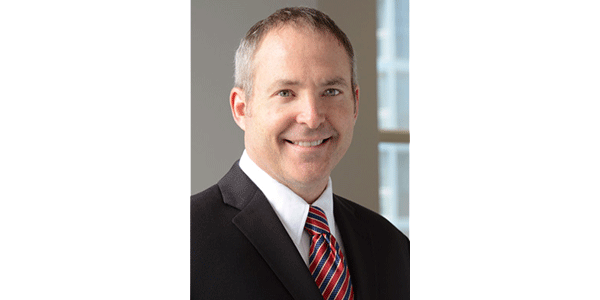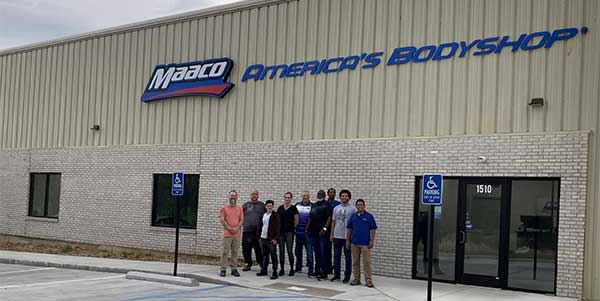A recent conversation with a shop owner reminded me of one of the biggest mistakes the vast majority of them make when planning their futures.
Bob founded his shop over 30 years ago and built a successful business. He was now looking to eventually transition to the next phase of his life. He thought he had successors yet wasn’t sure if they were the right ones. He thought he knew what he wanted his post-shop life to look like, yet he was struggling with envisioning what life would be like without his business. He wasn’t even sure what his business was worth. And, as he kept trying to put plans in place for his future, he seemed to be getting further away from it. All of this uncertainty was causing him to spin his wheels, and his five-year plan was now stretching to 10 years.
The Bear
Planning for a successful business future is like being confronted by a bear. If you run from it, it’ll catch up to you and eat you. If you attack it without a strategy, it’ll overwhelm you. And, to stretch the metaphor, simply rolling over and playing dead isn’t in the DNA of many shop owners, especially when it comes to their businesses.
With preparation and the right tools, you can come out on top. However, many shop owners fall prey to the misconception that they must have fully fleshed-out plans for a successful future. Just like you don’t need to eat the bear in one bite, you don’t need to have a full plan for a successful future.
Let’s examine how planning your future in steps can help you take on the bear of planning for a successful future on your terms.
Step 1: Find Your Golden Number
Regardless of the business you run, its size or what you want your future to look like, every single business owner has a golden number. The golden number is equal to the amount of money you must have to become financially independent without your business. When planning for a successful future, it’s imperative that you know what your golden number is. This means going beyond assumptions about what you and those you care about will need once you inevitably leave your business — by choice, death or otherwise. Taking this first step sets the tone for everything else. It can also motivate you to begin your planning long before you intend (or are forced) to leave your business.
Step 2: Start Filling in Your Asset Gap
Remember, the asset gap is the difference between the amount of money you currently have and the amount of money you must have to attain financial independence without your business. Determining the asset gap is something that many shop owners find challenging. That’s because business owners sometimes make three misguided assumptions:
- They think their businesses are worth more than they are.
- They believe they’ll need less money than they actually do after they leave their businesses.
- They underestimate how long they’ll live after leaving their businesses.
Fortunately, you can dispel these misconceptions with help from an unbiased advisor team. A strong advisor team does everything it can to maximize your company’s value and pursue your goals. While you may have a very competent team of accountants, attorneys, financial planners and insurance professionals, they may not have the experience or expertise to help you create an effective transition plan. By using objective measurements and strong strategies, an expert advisor team along with your team can position you to uncover and fill your asset gap.
Step 3: Maximize Business Value, Lower Taxes
Once you have your golden number and understand your asset gap, you can begin maximizing business value. There are many facets to maximizing business value. Some of these value drivers include the following: hiring next-level management and retaining key employees, operating systems demonstrated to increase cash flow sustainability, having a diversified customer base, having a proven growth strategy and having recurring revenue that is sustainable and resistant to commoditization. While installing these value drivers can take time, your next-level managers and key employees can help speed up the process. Additionally, working with tax professionals to minimize your tax obligations can create more funds that you can use to invest in your business, helping you further maximize business value.
Step 4: Determine Your Successor
Many business owners like to start here. However, starting by determining your successor can sometimes box you in. For example, you may want to eventually transfer ownership to an employee, only to find they have no interest in ownership. Similarly, if you don’t have an accurate company valuation, you may be surprised by lower-than-expected third-party offers, which can lead to tainting the marketplace. Remember that attaining financial independence is what defines a strong plan for a successful business future. Once you know what it takes to get you there, you can begin developing strategies that allow you to obtain financial independence via your chosen successor. On the other hand, knowing what you need to attain financial independence can change who you want to succeed you. It’s much better to make that change before everything else is in place.
Step 5: Plan for the Unexpected
The beauty of planning is that it could mitigate the negative effects of unexpected events. There are two things you can start doing right away — even if you haven’t taken any other steps yet — to prepare for the unexpected: create business continuity instructions and update or create your estate plan. Business continuity instructions provide guidance to your advisors, family, co-owners and employees for what to do with your business if you were to unexpectedly die or become incapacitated. Few things are more frightening than losing the captain of the ship without any guidance on what to do in such an event. Business continuity instructions can be that guide. Similarly, updating (or creating) an estate plan can give survivors guidance about what you would have wanted if you were to die unexpectedly. This is especially important for owners who intend to die at their desks.
However, it’s also important if you intend to leave your business during your lifetime. That’s because a well-crafted estate plan can provide strategies for allowing those you care for most to achieve the financial independence you had been working toward if you die unexpectedly.
Summary
Bob is now in the process of putting together a properly structured plan for his future and is utilizing an expert advisor team in conjunction with his own and is happy that he’s finally seeing clarity in his vision and progress toward his goals.
You don’t need to eat the entire planning bear in one bite. Instead, you can break it up into smaller pieces, savor the flavor of success and still keep moving toward the trophy of a successful future on your terms.
We strive to help business owners identify and prioritize their objectives with respect to their businesses, their employees and their families. If you’re ready to talk about your goals for the future and get insights into how you might achieve those goals, we would be happy to sit down and talk with you. Please feel free to contact us at your convenience.
















